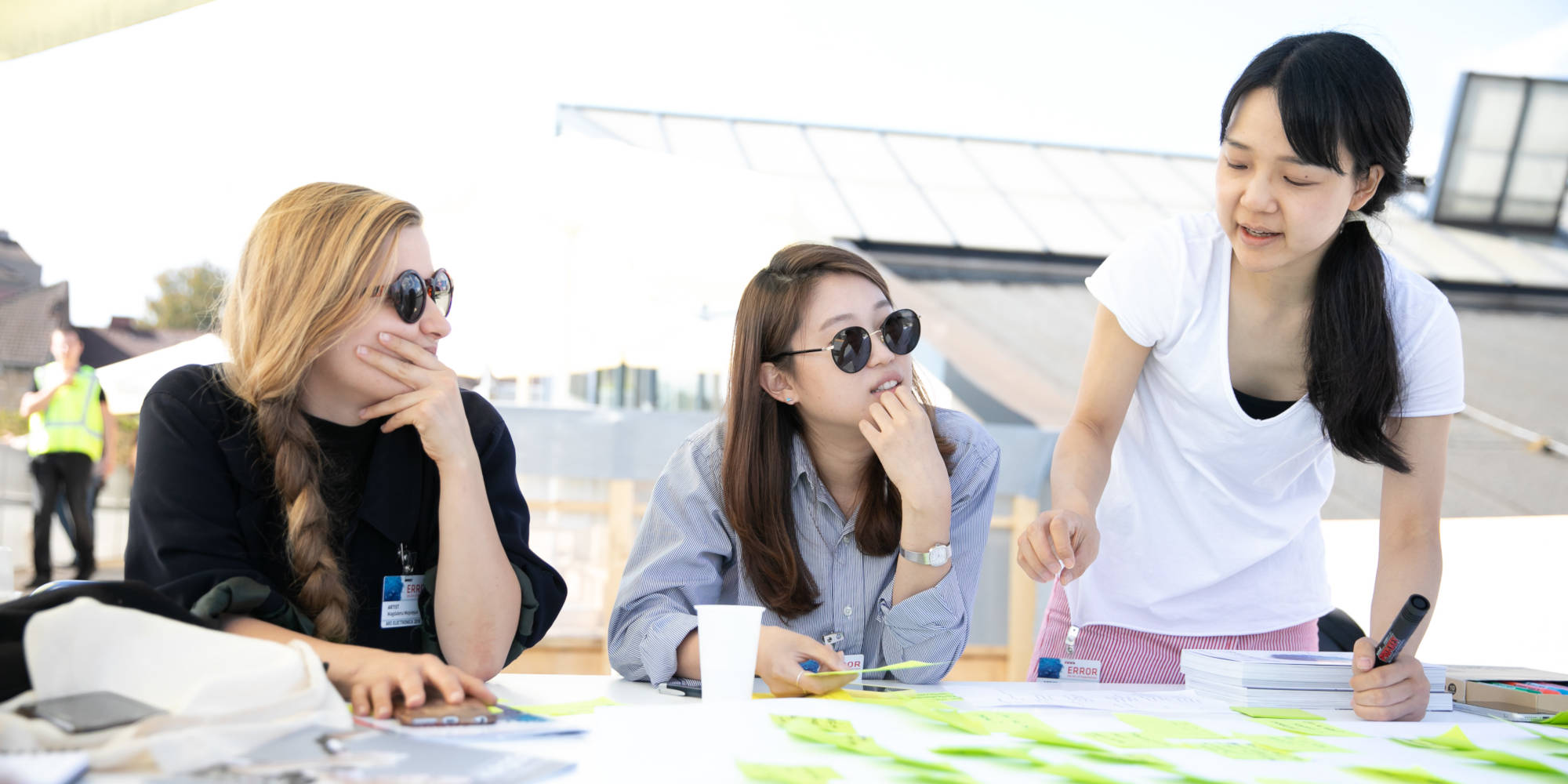from September 6 to September 9, 2018
The Future Innovators Summit is a creative system developed by Ars Electronica Futurelab and Hakuhodo. Now in its fifth year, it gathers experienced professionals as well as young entrepreneurs and social activists, technicians and scientists, and of course artists and designers at the Ars Electronica Festival in September in Linz for mutual inspiration and the exchange of ideas and know-how. Future Innovators are invited to explore new ways of collective brainstorming and creative prototyping on the crucial questions of the future. The line-up includes a broad range of lectures, presentations and exhibitions as well as ample opportunity for participants to engage in dialogue with each other and the public.
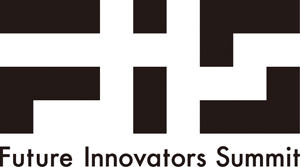
Why is this a unique opportunity?
At the moment, there is a growing range of events and gatherings for young entrepreneurs and start-ups, as well as hackathons, game jams and the like, where a young community of programmers and developers can interact. The same goes for festivals of young artists and conferences of young social activists. Although they all have an exciting and infectiously inspiring atmosphere in common, they often also share a certain air of elitist exclusivity, which sometimes makes it difficult for emerging professionals or outsiders to access them. On top of this, there are hardly any events at which these inspiring talents, creators and innovators can convene across the borders of their communities and disciplines. This is exactly the crossover we are looking for! Therefore, we are announcing an Open Call every year where interested people from all around the world can apply for the Future Innovators Summit (FIS).
Missions for Tomorrow
For the fifth time in a row, professionals from different cultures, backgrounds and fields, such as artists, designers, scientists, engineers, entrepreneurs, social activists and philosophers, are invited to join forces at the Future Innovators Summit at the Ars Electronica Festival in September to reflect upon the pivotal questions of the future. What started as an experimental format in 2014 has since then established itself as a dynamic think-tank as well as a “do-tank” and grown to be a key program within the Ars Electronica Festival.
Supported by experienced partners such as Hakuhodo (JP) and the Internet Foundation Austria as well as outstanding experts from all over the world, the participants of the 2018 Future Innovators Summit will be challenged to discuss and look for the ultimate Creative Questionwhich will lead us to think of missions and actions for tomorrow – concepts which are inevitably linked to the main topic of the festival “Error – the Art of Imperfection”.
The Themes of FIS2018
FUTURE HUMANITY
When we are facing a world where machines may evolve to be better thinkers and doers than humans, how does the meaning of error change? How do errors make us more human?Future Humanity seeks out our visions and missions in correlation with technology, other beings and ourselves.
- What errors are we attracted to? And why?
- How can we co-exist with imperfections?
- How can we become more human?
FUTURE DIGNITY
Everyone is aware of the errors, such as failing to treat others with dignity, or the rise of political and economic uncertainty, that attend digital progress in society. These errors are caused by a lack of respect and tolerance for the coexistence of tradition and the future. Would the knowledge and experience that we – the human tribe – have accumulated through our thousands of years of history, be of any use when the future is so unpredictable and highly digitized? Future Dignityseeks future beliefs and confidence for the digital society, especially when we are behind the wheels to make big decisions for tomorrow now.
- How would dignity be created in the digital society?
- What is tradition in an unpredictable future?
- How might arts of imperfection enhance our future dignity?
FUTURE SHARING
Digitization in our daily lives, between humans (and also between humans and non-humans) is evolving very quickly. In this new stage of community building and sharing, what will we need or want to share? What would be the errors entailed? Future Sharingexplores our actions for tomorrow as beings who exist in a community of some kind, be it physical or digital.
- What errors could occur in our future shared society?
- What would humans need to share? And how would it be realized?
- How could we arrange for tolerance of errors in society?
Creative Questions of FIS2018
- Future Humanity (A): How can we optimize diversity to navigate the future?
- Future Humanity (B): If we could create the perfect form of communication, how would the world look like?
- Future Dignity: How do we allow freedom of self-determination with the belief that data decides better?
- Future Sharing: What are the new digital ingredients required for the future soup?
Final Presentation 2018
Program overview of FIS2018
| THU Sept. 6, 2018 | 11:30 AM – 1 PM | Kick Off Flash Talks by FIS Participants | POSTCITY / Workshop Space |
| . | 5 PM – 6:30 PM | Opening Symposium | POSTCITY / Lecture Stage (public) |
| FRI Sept. 7, 2018 | 10 AM – 12 noon | Digital Community Lounge | OK im OÖ Kulturquartier (public) |
| . | 12:30 noon – 2:30 PM | Mentor Lecture Lunch & Inspiration Tour | POSTCITY |
| SAT Sept. 8, 2018 | 10 AM – 5 PM | Intensive Workshopday | POSTCITY / FIS Workspaces |
| . | 6 PM – 7 PM | FIS Wrap Up Talk | POSTCITY / Lecture Stage (public) |
| SUN Sept. 9, 2018 | 4 PM – 5:30 PM | FIS Final Presentation | POSTCITY / Lecture Stage (public) |
Future Humanity (Group A)
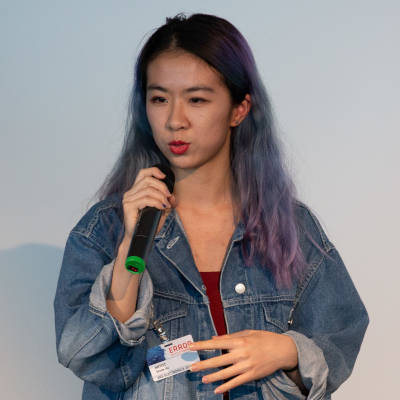
Snow Xu (CN/US)
Snow Xu is an artist who uses VR, AR, algorithms, circuits to explore the anatomical and affective differences between humans and machines as they confront each other. Xu explores how computers and machines are used to mediate human biases and transgression that stem from commercially marketed modes of human-machine intimacy. In works like Imperfecthuman Therapy Station TM, Xu highlights the techno-social neglect and anxiety the oppressed groups experience. Her artworks exhibit at venues including Museum of Contemporary Art Chicago. As a professional, she has worked alongside scientists, engineers, and data analysts at Viacom and Argonne National Laboratory to create data-driven immersive experiences. Xu is currently completing her BFA in the School of the Art Institute’s Art and Technology Studies department.
snowxushinuo.com
„As an HCI artist, I work towards reconciling the conflict caused by the perfect-imperfect binary. My practice analyzes how obsession with perfection contributes to injustice against minorities. Additionally, I explored how identifying calmness as the perfect mental state undervalues evolutionarily important body mechanisms such as anxiety and flight. I believe acknowledging the integral “imperfection” in human is the first step to dissolve perfect-imperfect binary and accept our position of being.“
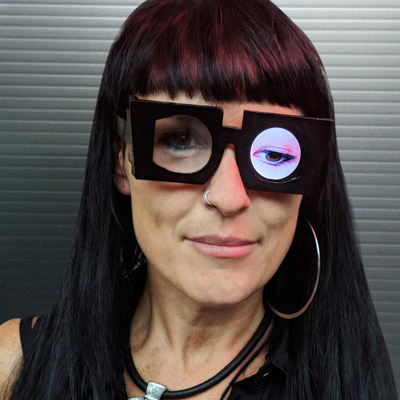
Georgie Pinn (AU)
Georgie Pinn is an multi-media artist who’s creative practice is underpinned by her long-term research into empathy as a creative force for making connection and breaking down prejudice and stereotypes. This year her project, ECHO, tours internationally, building an archive of cross-cultural experience. It was recently installed at ISEA in S.Africa and has been awarded an Honorary Mention at Ars Electronica.
www.electric-puppet.com.au
„Error is chaos. / The bump in order / The renegade, the punk, / The glitch in the formula.
As an imperfect artist, into process and machines, I often scratch at the space for mistake, revelling in the unexpected reshuffle of something yet defined. As machines help us to steady the predictive nuts and bolts of order perhaps humans can then transcend to another level of emotional intelligence, sharpened instincts and better tools for connection?“
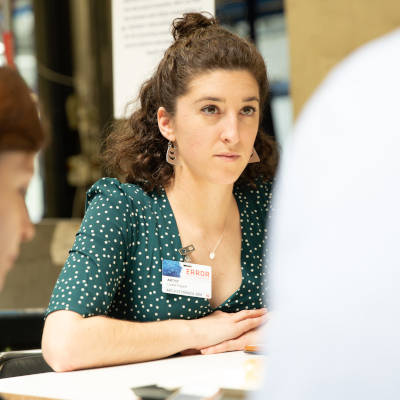
Lizzie Crouch (UK/AU)
Lizzie is the Director of Engagement for SensiLab, Monash University (Australia). Having gained a BA(Hons) in Physiological Sciences from Oxford University and an MSc in Science Communications from Imperial College, London, Lizzie has worked in a range of large and small organisations, cultural contexts, disciplines and sectors to engage people with scientific content. Among other roles, Lizzie has produced health programmes for BBC2 and BBC World, was Tour Producer for a science theatre show, led on Kew Garden’s annual orchids festival and consulted for the Wellcome Trust. Most recently she worked with Science Gallery, an international network of art-science galleries, producing seasons for London (MOUTHY) and Melbourne (BLOOD).
sensilab.monash.edu/people/lizzie-crouch
„By and large we consider ourselves logical beings. However, we are not consciously aware of the subtle, systematic biases that shape us as humans, and therefore our culture. If we have such limited awareness of how we currently live with our own ‘errors’ – what does this mean for a future where technology could bring them to the fore? Technology will have to be designed to communicate, and work with us on, our imperfections. Incorporating learnings from behavioral science could affect how technologies understand and respond to such errors – for example; by changing the amount or type of data they use. We could also incorporate knowledge about how we react to each other’s imperfections, allowing technologies to act as mediators and encourage dialogue.“
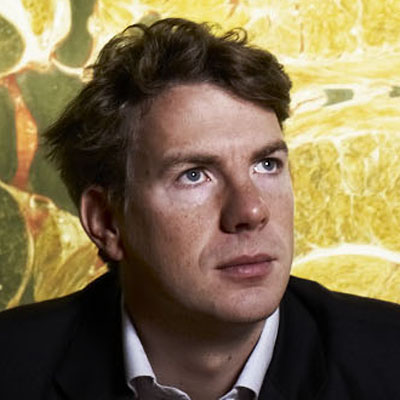
Markus Schmidt (AT)
Dr. Markus Schmidt is founder and team leader of BIOFACTION KG, a research, technology assessment and science communication company in Vienna, Austria. With an educational background in biomedical and electronic engineering, biology and environmental risk assessment he has carried out several studies in science and technology fields such as GM-crops, gene therapy, nanotechnology, xeno- and synthetic biology, neuro-technology, artificial intelligence and converging technologies. Markus coordinated various European projects, e.g. SYNBIOSAFE, the first European project on safety and ethics of synthetic biology (2007-2008). He is the author and editor of several peer-reviewed articles and books about synthetic biology and art, designed science-game apps for mobile devices, and produced several science documentary films. With his team he designed the “Possible Tomorrows” exhibition at the Vienna Design Week 2016 and the „Plant Designer“ exhibition at the London Design Festival 2018.
www.biofaction.com
„In FUTURE HUMANITY I would like to explore the following questions: How will technological changes brought about by neurotechnology and synthetic biology alter what it means to be human? What kind of future humanity is probable, what is possible and what is desired? How will we communicate with each other and how will we interact with non-human agents, both organic and digital?“
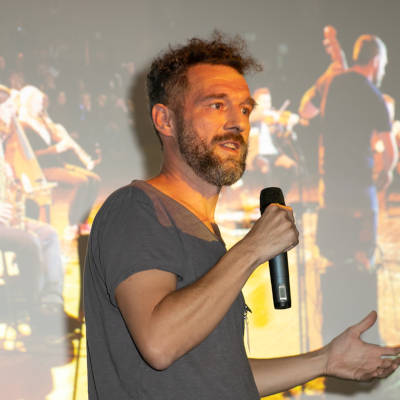
Krzysztof Cybulski (PL)
Krzysztof Cybulski, musician and sound artist, co-founder of panGenerator art collective. He received honorary mention at Prix Ars Electronica in 2017 in category digital musics & sound art; presented his work at events such as New Interfaces for Musical Expression, Athens Digital Arts Festival, Margaret Guthman Instruments Competition, Warsaw Autumn Festival, Musica Polonica Nova, Biennale Wro.
krzysztofcybulski.com
„Human hands are imperfect in a sense that you couldn’t repeat exactly the same gesture twice. So are are the tools belonging to the material world – they tend to behave in a slightly chaotic way. These minor variations are something that we’re accustomed to and perceive as natural, but they are hard to simulate in a digital domain. Despite numerous strategies to cope with this inconvenience, at the end of the day even the most sophisticated ones, like neural networks, are usually modeled on real world examples, so they’re merely trying to imitate what we already perceive as most natural and perfectly imperfect.“
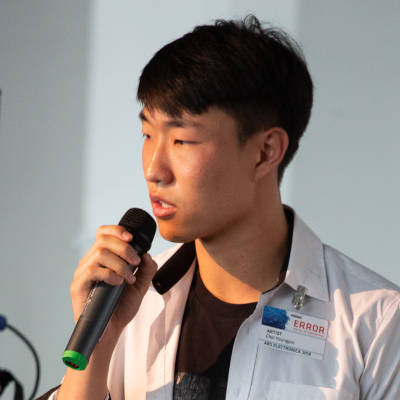
Choi YoungJun (KR)
Entered Korea Maritime & Ocean University at 2015, majoring offshore plant management and ship engineering. Served 12 month of apprenticeship as an engine cadet in 2017. Accidentally discovered ‘ZER01NE’ through wikipedia after reading book ‘Zero to One’ by Peter Thiel and joined since March, 2018. Interested in enabling humanity to dream big and more people to develop their own young, irrational, childish ideas.
Wildcard from ZER01NE: zer01ne.zone/people
„Whether willing or not, one’s life mirrors the deep attachment oneself has. When motives extracted from their physical incarnation, there’s our most clear testament which reflects various versions of ego. Individuals’ criteria shall be founded along with the trial of perceiving unexpected versions which pursuits perfection while plowing through those imperfect moments.“
Future Humanity (Group B)
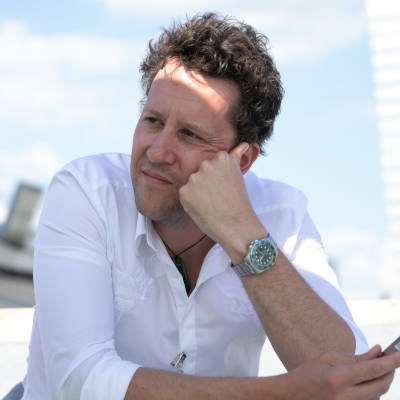
Matt Kemp (AU)
Dr Kemp holds PhDs in Education and Medicine and is currently completing Harvard Business School’s Program for Leadership Development. He completed a Postdoctoral Fellowship at the University of Oxford before being recruited to the University of Western Australia where he now leads an international consortium of perinatal researchers focussed on rapidly and safely reducing the health burden of preterm birth. His specialist interest is in the development of new therapies for preterm infants and his work in this space has been funded by national and international agencies including the Royal Society, National Institutes of Health, Bill and Melinda Gates Foundation, and the National Health and Medical Research Council.
research-repository.uwa.edu.au/en/persons/matthew-kemp
„“How I define errors, and the ways in which my team and I respond to and interact with them is both fundamentally important to our work and entirely contextually dependent. At a technical-rational level, errors are something we do our utmost to avoid; for example we might want to avoid the use of an incorrect reagent in an established system when said system is being used for a tightly defined purpose. Conversely, error and iterative discovery are central to our experimental technique and, I would argue, an essential element balanced of scientific discovery. From a perspective of personal challenge and satisfaction, deciphering meaning from something that at first pass looks like a failure or error is far more satisfying and engaging than working with an expected result.
It strikes me that having the ability to decode and extrapolate from an unexpected outcome, or contextualise and then launch in a new direction using data that disprove a hypothesis or a priori view point is a uniquely human and extraordinarily valuable trait.““
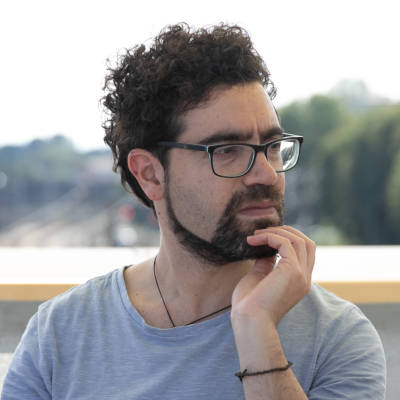
Mark Bolotin (AU)
Mark Bolotin is an award-winning multimedia artist, inventor and technologist, as well as the founder of Synarcade Audio-Visuals and co-founder of the renown New York art technology company Hyphen Hub. Bolotin creates giant hybrid creatures and pioneering multimedia work that fuse together interactive film, performance, music, puppetry and artificial intelligence in unique new ways. He has shown his work across the world including at the Sydney Opera House, New York Hall of Science, Museum of Modern Art (Zagreb), SXSW (Texas), Burning Man and MCA (Sydney). He was Co-Director of Arts for New York’s inaugural Creative Technology Week in 2015 and his twelve-headed invention was recently featured at TEDxSydney. Bolotin is based in Sydney and New York.
www.synarcade.com.au
„I do not believe that we should be striving to be more human. We should strive to be post-human – part-human, part-machine, melding our bodies with meaningful technology. For too long we have held onto the mistaken idea that imperfection justifies our humanity. As post-humans, rather than make unwitting mistakes of the senses and body, we will be free to make conscious manipulations of defiance, sabotage or provocation.“
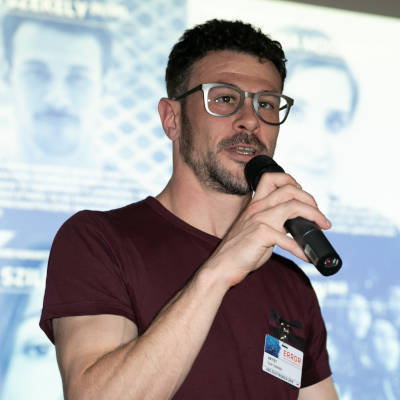
Saar Szekely (IL/DE)
Saar Székely is a Hungarian-Israeli artist, technology leader and activist based in Berlin. His diverse works, including social experiments, performances and theatre, create spaces for experimentation in consciousness and interpretation. As VP Product of Feelter, he was MassChallenge Boston finalist and won GMIC WorldWide Grand Prize (2016). Saar earned his MA in Performance Studies from TAU.
saarszekely.com
„As Humans, we are constantly navigating through a multitude of systems: cultural, economical, technological, political. Multitudes that shape us and our consciences while being shaped by us, creating purposes but without a purpose. To be more human we should maintain the cracks, balance the way in which technology not only serves us but reshapes us.“
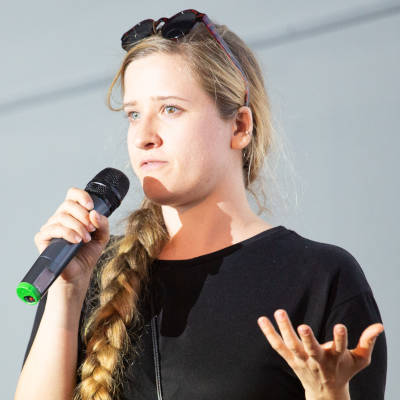
Magdalena Moisejuk (PL)
Magdalena is a designer and foremost notorious „google academy” scholar. She’s oassionate about trivia and social welfare and endlessly looking for dots to connect and apply gathered knowledge. In her work she’s mainly tilizing craft, technology and social sciences to search for better, greener and more circular future.
magdamojsiejuk.weebly.com
„An error lies in our philosophical perspective, we are stuck in an enlightenment era dichotomy of nature vs human. Yet there are many inspiring human inventions and technologies, like knitting – a brilliant and uniquely human technology. Functioning in this dichotomy leads to exclusion from nature and removes us from responsibility towards the planet. Humanity nor nature are perfect, it is a continuous struggle, and an error is just a way to perfection.“
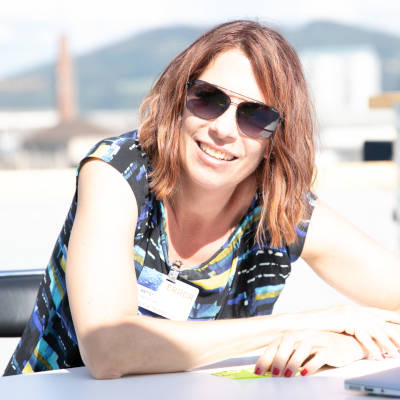
Illya Szilak (US)
Illya Szilak is a writer, director, and interactive storyteller. Shaped by her experiences as a physician, her artistic practice explores mortality, embodiment, identity, and belief in a media inundated and increasingly virtual world. Cyril Tsiboulski is her longtime artistic partner. Their works include Reconstructing Mayakovsky, Queerskins, and Queerskins: a love story, a VR experience.
illyaszilak.com
„We are attracted to errors that open up our understanding and perception of the world and self. (Art does this.) This is an uneasy pleasure because epistemology is linked to phenomenology through the fragile body. What does it mean to perfect? An impossible question! The kinds of data that we privilege and keep determine what we consider to be error. The question itself reflects a value system. To become „more human,“ requires courage, curiosity, humility and a recognition that, although all realities are virtual, few of us can live their. For most of us, reality remains a bullet in the brain.“
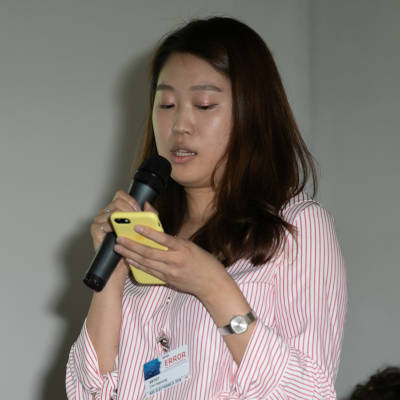
Cho Hoyoung (KR)
Hoyoung is interested in the momentum of when things turn from the familiar to the unfamiliar, or the other way around. This momentum encompasses from materialistic change to ideological or cognitive change. She received her B.F.A and M.F.A in Fine Art at the Korea National University of Arts, Korea. She likes to work on Installation Art and structures which calls for people’s participations. She joined ‘Neighbors and Strangers’ Public Art Project at Buk-Seoul Museum of Art (2016). She recently had a double exhibition titled ‘Zwischenraum’ at Raumschiff in Linz, Austria (2017).
Wildcard from ZER01NE: zer01ne.zone/people
„Humans can easily find new errors that are growing rapidly as technology advances. Among these errors, we’re attracted to the errors what is hard to admit by the criteria we set before. It’s because, there are still differences between the way machines and humans think although computers get better to think like humans. We can find value of human imperfection/humanity in our approaches and interpretations of the fascinating errors perceived by these differences.“
Future Dignity
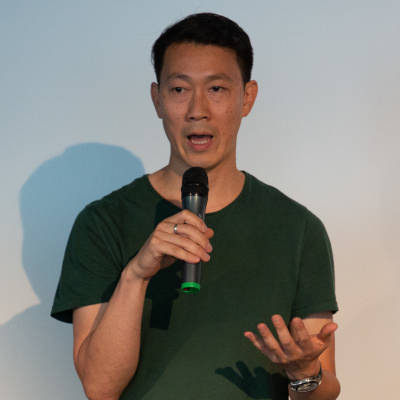
Kevin B. Lee (US/DE)
Kevin B. Lee is a US-born, Germany-based filmmaker and critic. Over the last ten years, he has produced over 360 video essays exploring film and media. His award-winning film Transformers: The Premake played in several festivals, including the Berlin Film Festival Critics Week. In 2017 he was the first-ever Artist in Residence of the Harun Farocki Institut in Berlin. He is now Professor in at the Merz Akademie, Stuttgart.
www.alsolikelife.com
„When the dignity of humans is mediated so much through digital data and images, I wonder to what extent the future of human dignity is a digital dignity. What dignity does the digital possess, distinguishable from the human? Once recognized on its own, will the dignity of the digital allow for greater human dignity, displace it or replace it altogether?“
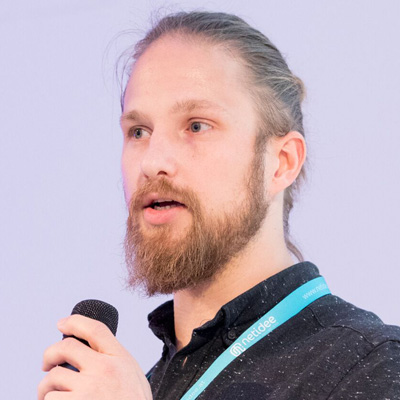
Harald Koberg (AT)
Harald Koberg is a cultural anthropologist and media pedagogue focusing on digital gaming. He is head of the department for digital games at Ludovico, an NGO promoting game culture and game pedagogy. As a researcher at Uni Graz he is working on representations of digital play and it’s social relevance. Harald also heads the annual button Festival of Gaming Culture in Graz.
www.ludovico.at/home/mitarbeiterinnen
„In the end it’s all about human interaction. The modes are changing, the spaces, and the visuality. But it’s still humans interacting as they always did. If we keep that in mind, we can value experiences and passed on knowledge and at the same time encourage to delve into new possibility spaces without being scared of the uncertainties they entail.“
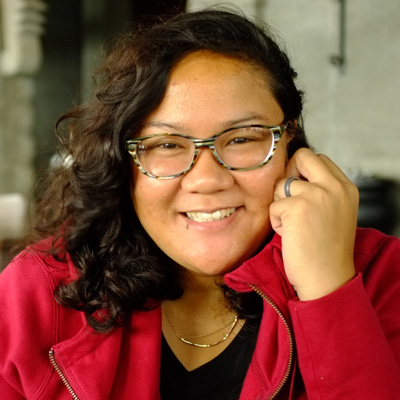
Pia Ocampo (PH)
This year, Pia left as Exec. Creative Director of Wunderman Manila, a network outpost that in her term, behaved more like a creative technology company than a direct marketing firm. She has built a 16year portfolio of advertising communication solutions that span Direct Marketing, Advertising, Activation, Digital, Social and Innovation. But right now she’s at a life pivot. With more than enough practice problem-solving for her clients, she’d prefer to spend her time now problem-solving for the real world, working towards real impact. Her current focus is on saving coral and reef life from marine plastic litter, and is privileged to do so in the Philippines, the world’s center of marine biodiversity.
wunderman.ph/about/pia-ocampo
„We are living in a world where our physical state is linked to the dignity we are afforded. How well we treat people depends so much on there having a place to live (refugees), if so, where they do (urban poor); how much they earn (if at all); what is their past („drug addicts“ in the Philippines), what do they wear (women), how do they look? Even online, the physical state the online other perceives still controls how much dignity one gets. I’d like to find an answer to the future of human dignity by starting with: How might we uncouple human dignity from our physical matter? „
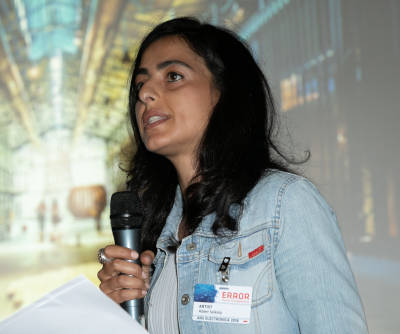
Abeer Seikaly (JO)
Abeer Seikaly, an architect artist and designer weaves available resources with a strong environmental approach. To express architecture as social technology, Abeer uses many disciplines which help re-define the spaces in which individuals interact. In 2013, Abeer won the Lexus Design Award for her work “Weaving a Home” that explores dwelling concepts through social architecture. In co-directing Amman Design Week, Abeer helped in providing active learning opportunities to a wide audience with the underlying mission to foster a culture of design-thinking and collaboration in Jordan. Abeer’s Architectural and Design Practice is where she crafts objects and spaces in response to the need for communal well-being. Abeer received her BArch and BFA from the Rhode School of Design in 2002.
www.abeerseikaly.com
„Our dignity relies on a process of nurturing our connection to tradition, community and nature. Making things through trial and error, while relying on intuition and experience, is a necessary tool to connect the cultural heritage of the past with our present. Put the past and the future together, with awareness, and we will know how to truly and meaningfully think and innovate ideas for the future.“
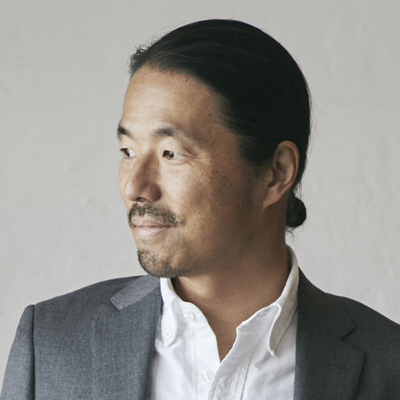
Michiaki Matsushima (JP)
Editor in Chief of WIRED Japan since June 2018. Born in Tokyo. Graduated with a degree in Sociology from Hitotsubashi University. He joined NHK Publishing Inc. in 1996. His work has centered on the field of translated books including acquisitions, editing, promotions, etc. In 2014 he became editor-in-chief of the Translated Book Department NHK Publishing Inc. Tokyo Japan. In addition to numerous best sellers including „Free: The Future of a Radical Price“ and „Makers: The New Industrial Revolution“ (both by Chris Anderson) and „The Inevitable: Understanding the 12 Technological Forces That Will Shape Our Future“ (by Kevin Kelly): Japanese Business Book Grand Prix 2017 winner (Innovation category).
wired.jp/staff
„The future is already here – it’s just a matter which one we will pick up. Future Dignity could depend on how much we (humans not technology) can choose the future by ourselves (w/ technology’s help). Human choice always means human errors, and the arts of imperfection could remind us our generosity, compassion (for even robots), and Japanese world view “Wabi-Sabi” (acceptance of imperfection) that would be the fundamental principle of Future Dignity.“
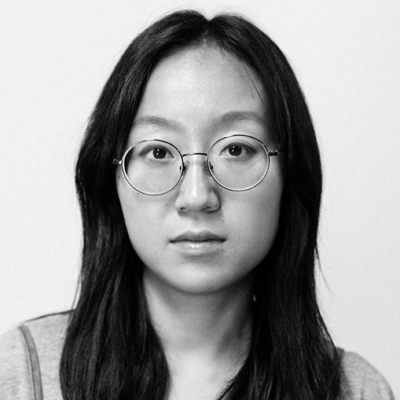
Hwang Moonjung (KR)
Moonjung Hwang is a South Korean artist who graduated from the M.Litt Sculpture programme at Glasgow School of Art. She is primarily interested in exploring spatial expression and its narrative in her imagination, combining her own original creations with ‚found‘ objects to develop work that has a new story, image and function in relation to the context in which it is produced. She At ZER01NE, Moonjung is part of a team project where the team is building a mircro-nation.
Wildcard from ZER01NE: zer01ne.zone/people
„I think that the subject in art will always be ‚human‘ even in the unpredictable future, highly digitized future. Art will always keep a close eye on the relationship between people and the future society and provide a clue to future dignity.“
Future Sharing
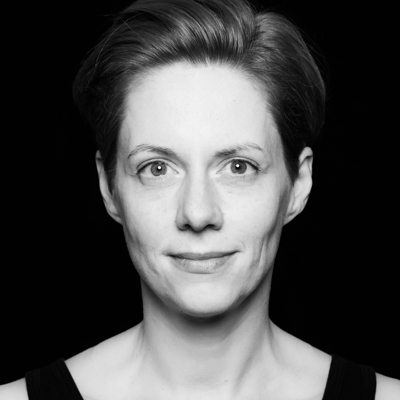
Sandra Trostel (DE)
„Is an independent filmmaker and new digital storyteller from Hamburg. After almost 10 years as an editor for documentaries, feature films, commercials and music videos I began pursuing my own documentary projects and realized several music videos, among others for Pantha Du Prince, Deichkind or Phantom Ghost. My first full-length documentary, UTOPIA LTD., opened the section Perspective German Cinema at the Berlin Film Festival in 2011. It was shown at further international festivals in Mexico, the Netherlands and Austria, had a cinema run and was aired on German TV. After EVERYBODY’S CAGE, a movie on John Cage, which was shown at several festivals in Spain, the US, Austria and Germany, had a cinema run and was the first movie screened at the Elbphilharmonie, ALL CREATURES WELCOME is my third feature-length film. Besides that I’m currently pursuing my master’s degree in „Next Media“ at the HAW Hamburg, department Informatics and started my first projects in new digital storytelling.
sandratrostel.de
„The free availability of culture and knowledge must be the future, because sharing something can make more out of it!“
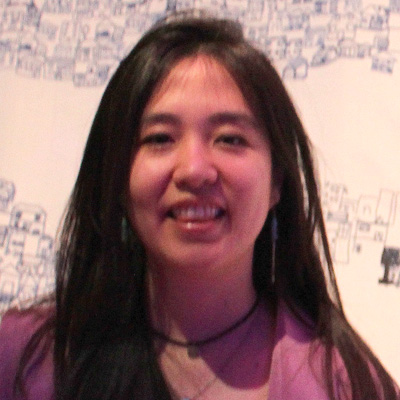
Cynthia X. Hua (US)
Cynthia X. Hua is a researcher and artist working to understand artificial intelligence and the processes behind algorithmic technologies that tie them to culture identity and economy. Hua has shown works at the SF Arts Institute, The Mint Museum, the American Institute of Architects and other institutions. She is currently an incubator member at the New Museum studying innovative museum technologies, and has previously taken part in fellowships/residencies from the Yerba Buena Center, Signal Culture and the Laboratory. She has spoken about technology and culture at outlets such as Theorizing the Web and Creative Tech Week.
cynthiaxhua.com
„I am interested in how we can design systems for future sharing that account for culture and identity. Our background in part determines how we communicate and who we communicate with, and platforms should be designed to account for the diverse and differing modes of communication in various cultures. For example, marginalized populations may not feel the same license to „Share“ or „Post,“ but a platform should be designed to still give these groups a voice. „
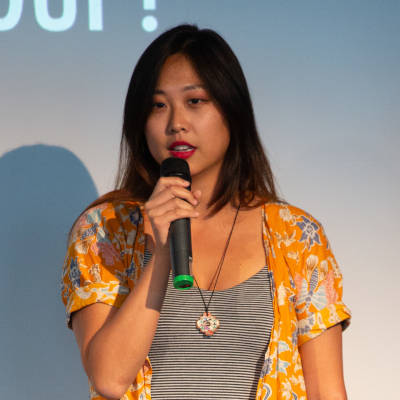
Jennifer Katanyoutanant (US/TH)
Jen is an artist, creative producer, and founder of ‘Made in Asia,’ a new media consultancy and Creative Tech Lab that provides a space for artists, technologists, academics, and local communities to explore creative solutions to ASEAN problems, together. She’s interested in using social aspects of interactive art and technology to engage with local communities around the world.
madeinasia.co
„Right now, most strangers on the internet seem like potentially aggressive Youtube commenters. In the next 10 years as millions more come online, we need a way to digitize good intentions, to make people believe that a stranger you meet online could be as friendly as someone reading your favorite book at a coffeeshop. I propose a random quote generator that provides an anonymous framework for sharing embarrassing stories about yourself and your network. Shared humility leads to shared humanity. „
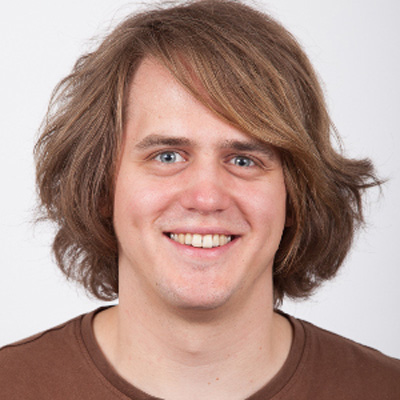
Niklas Grimm (DE)
Niklas Grimm obtained his Bachelor’s degree at Saarland University in Germany. He continued at the Saarbrücken Graduate School of Computer Science and started his PhD with Prof. Matteo Maffei at CISPA. Currently he’s living in Vienna and working on his PhD at the Security & Privacy group of TU Wien with a focus on formal methods in web security.
logic-cs.at/phd/students/niklas-grimm
„I believe that one of the most important aspects about sharing is privacy. It is crucial that humans have full control over which personal information is shared with which parties. Errors (or even deliberately malicious behaviour) can have severe consequences, since reverting the process of sharing is often impossible.“
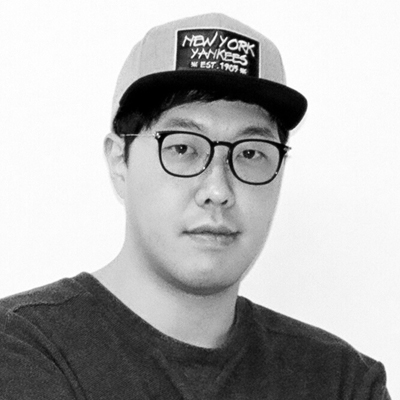
Park Seungsoon (KR)
Seungsoon Park is an electronic music composer (a.k.a. Radiophonics) creating a variety of new media contents and also one of the co-founders of the art collective ‘IDEAN’. As the electronic music composer, he creates music pieces based on concepts like the physics of the universe, natural phenomena, and contemporary philosophy. As a new media artist, he has developed several interfaces and installations using water, light, and sound. In 2017, he created ‘NEUROSCAPE’ which is a system for artificial soundscapes based on the multi-modal connection of deep neural networks. In the process of keeping these diverse experiments, he agonizes over the possibility of technical media being applied in music or sound and also suggests new ways of creating.
www.seungsoonpark.com
Wildcard from ZER01NE: zer01ne.zone/people
„I am interested in the subject of ‚future sharing’ because, new technologies are constantly emerging, but we will still want to hear other people’s stories in the future. Especially in the area of sound recording technology, the emergence of new devices has allowed humans to share different ways of composing music and expressing ourselves, from radio to podcast, vinyl to digital sampling. How can we share our stories in a better way, and what is a good story? And how useful is technology in achieving this?“
Mentors
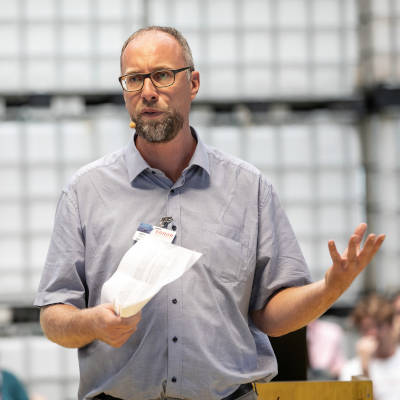
Mark Coeckelbergh (BE/AT)
Mark Coeckelbergh is Professor of Philosophy of Technology and Media at the University of Vienna, Austria, and President of the international Society for Philosophy and Technology. He is also member of the High Level Expert Group on Artificial Intelligence, European Commission, and the Robotics Council of the Austrian government. He is the author of 9 books and numerous publications. He is the author of 9 books and numerous article publications. His specialization is ethics of new and emerging digital technologies, in particular robotics and artificial intelligence. He contributes to international and national policy making in these areas, and is interested in connections between technology, art, and philosophy.
philtech.univie.ac.at/team/mark-coeckelbergh
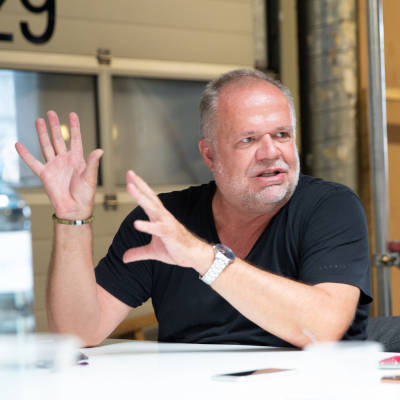
Kilian Kleinschmidt (DE)
Kilian Kleinschmidt is an international networker, humanitarian and refugee expert with over 25 years of experience in a wide range of countries, emergencies and refugee camps as United Nations official, Aid worker and Diplomat. He is the founder and Chairman of the startup Innovation and Planning Agency (IPA) which aims at connecting the millions of poor and disadvantaged with relevant and under-utilized resources and modern technologies of the 21st century through its project SWITXBOARD. He is part of a number of initiatives and Projects which aim at global connectivity through better use of globalization. He is currently developing a number of ventures which aim at sustainable investment in very fragile environments. He most recently became known as the “Mayor of Za’atari“ when he managed the refugee camp of Za’atari in Northern Jordan from 2013-2014 on behalf of UNHCR. Za’atari has become a symbol for new and innovative approaches in refugee and humanitarian management under his leadership. Kleinschmidt has published two books – “Weil es um die Menschen geht” (ECON 2015) and “Beyond Survival” (Dumont-Mair 2016) and authored a number of articles on refugee and migration issues. He is a renowned public speaker in conferences, TEDx and other events.
www.switxboard.net
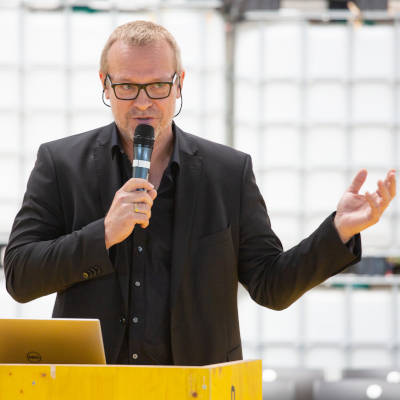
Horst Hörtner (AT)
„Horst Hörtner is a media artist and researcher. He is expert in design of Human Computer Interaction and holds several patents in this field. He started to work in the field of media art in the 1980ies and co-founded the media art group x-space in Graz/Austria in 1990. Hörtner is founding member of the Ars Electronica Futurelab in 1996 and since then directing this atelier/laboratory.
Since 2013, Horst Hörtner also holds a position as conjoint Professor at the University of Newcastle/Australia. He is working in the nexus of art & science and giving lectures and talks at numerous international conferences and universities.“
ars.electronica.art/futurelab/
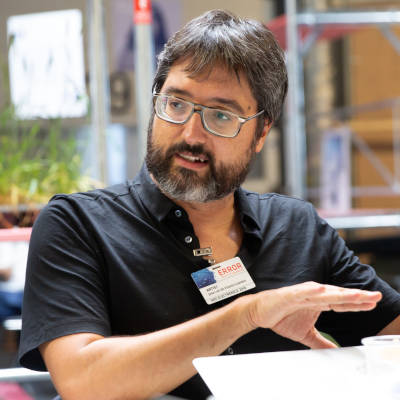
José Luis de Vicente (ES)
Jose Luis de Vicente is a curator and cultural researcher working in the space between art, design, science and innovation. Since 2000 he has conceived, developed and curated exhibitions, festivals, symposiums, workshops, residencies and other formats for research, communication and debate in museums, art centers, citizen labs, music festivals, industry conferences and exhibitions, universities and other contexts. In his work, current and future impacts of technologies are investigated creating artifacts, objects and narratives that expore emerging social and political scenarios. His projects are strongly antidisciplinary and create contexts for the collaboration and dialogue between artists, designers, architects, technologists, scientists, activists, policy makers and community groups. Currently he is the curator of Sónar+D, the Creative Technologies and New Media conference of Barcelona’s acclaimed Sónar Festival, as well as a curator at FutureEverything Festival, Manchester. He teaches at the Institute for Advanced Architecture of Catalonia (IaaC) His most recent exhibitions are “After the End of the World” (Barcelona, CCCB 2018; Liverpool FACT-Bluecoat-Riba 2019) and “Big Bang Data” (Barcelona CCCB 2014, in international tour until 2018.)
futureeverything.org/people/jose-luis-de-vicente/
Facilitators
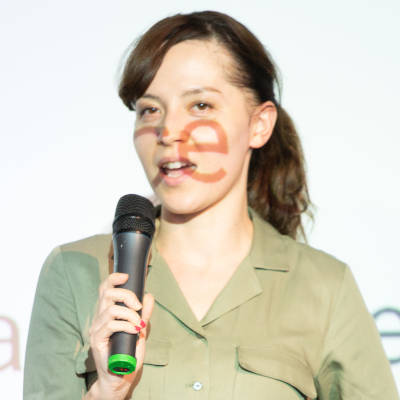
Fran Miller (JP)
„Creative Producer, Hakuhodo Global Market Design Division. Fran Miller is a Creative Producer at Hakuhodo. Fran’s extensive knowledge on global business coordination for foreign clients in Japan and Japanese business abroad, has led to her current post as Creative Producer. Currently she leads inbound and outbound projects for re-known brands. She is half-Japanese, half-American and is bilingual and bi-cultural, educated in both cultures.“
www.hakuhodo-global.com
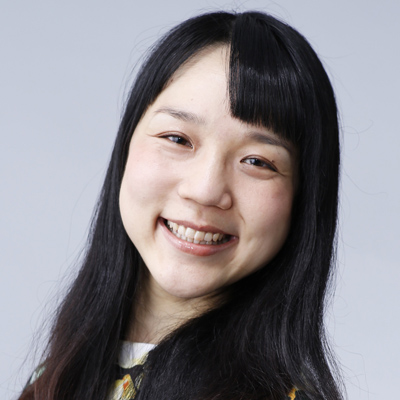
Naho Sugimoto (JP)
„Marketing/ Strategic Planner, Hakuhodo Brand Innovation Design Division. Naho is so much interested in analyzing people’s behavior or way of thinking, She specializes in utilizing those findings and develop into strategies for marketing, branding, etc. Naho joined Hakuhodo in 2010 after obtained MA & BA in Social Psychology from the University of Tokyo.“
www.hakuhodo-global.com
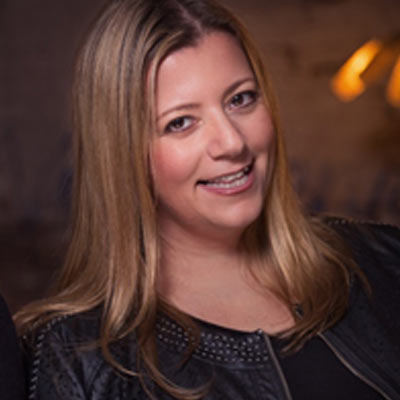
Daniela Krautsack (AT)
Daniela Krautsack is a media strategist, urban and futurologist and start-up entrepreneur. After an MBA and a post-graduate accelerator program at THNK Amsterdam, she changed her professional focus after two decades in advertising towards urban development, participation design and cross-generational product development. As an expert with a focus on branding in public spaces, ambient media and future city design, she can look back on an international career in Vienna, London, Zurich, Mexico City, two decades as a lecturer in academic institutions, at conferences and festivals and numerous world tours. Her passion lies in creative thinking and networking with experts from science, culture and business in order to solve current problems and future challenges in cities.
citiesnext.com/staff/daniela-krautsack
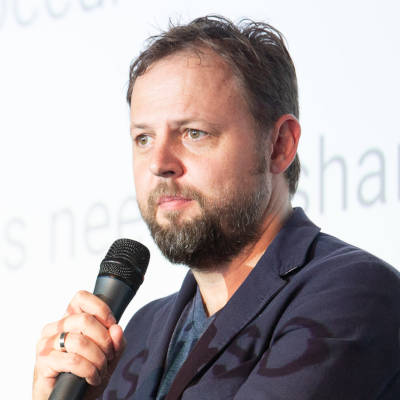
Kristefan Minski (AU)
Kristefan Minski (AU) is a cross media artist, producer and researcher concentrated at the nexus of art and science. His primary passion is the way in which artistic thinking combined with technological application can influence and improve our future societies. His production portfolio covers a broad range of mediums and has been culminated by his work at Ars Electronica Futurelab since 2009. He is responsible for Ars Electronica’s activities in Australia including the establishment and management of bilateral partnerships with several leading Universities. He also gives lectures at many other international schools and since 2015 is pursuing a PhD about collaboration in experimental art.
ars.electronica.art/futurelab/en/team/kristefan-minski
The workshops will be facilitated by our partner Hakuhodo. The Hakuhodo facilitators will accompany the workshop process and lead the discussions during the Future Innovators Summit.
Ars Electronica Tokyo Initiative
The Future Innovators Summit (FIS) is a hands-on discussion program, which has been developed jointly by Ars Electronica and Hakuhodo, and it is part of the program of Ars Electronica Tokyo Initiative (AETI).
The Ars Electronica Tokyo Initiative is a mission-driven community of innovative people centered around Ars Electronica and Hakuhodo. As a creative group, AETI is collaborating on the ideation of and for a future society, as well as the actual implementation of the generated ideas. We carry out various workshops, events and exhibitions with diverse talents from all over the world, and also engage in collaborations for private sector innovations. The mission “What can we do to make a better future Tokyo and Japanese society?” stands at the heart of AETI’s activities. The very first Future Innovators Summit Tokyo at Tokyo Midtown in May 2018 is symbolic of this aim. For FIS Tokyo, the concept was extended to imagine “Tokyo as a Laboratory for our Future.”

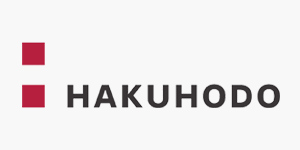
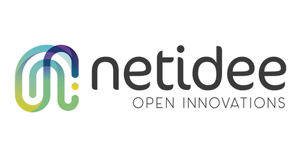
The Future Innovators Summit is an initiative from Ars Electronica and Hakuhodo. Supported by netidee.
